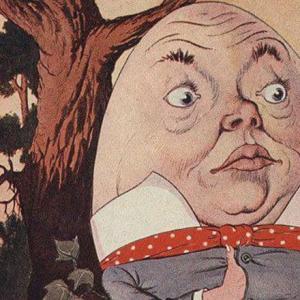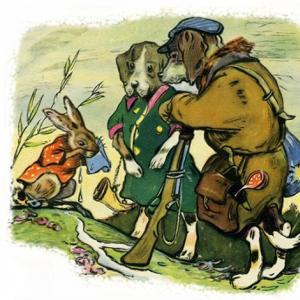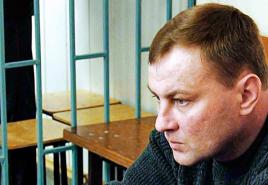Apollo Grigoriev guitarist biography. Memoria
Apollon Alexandrovich Grigoriev is one of the most famous Russian theater and literary critics of the 19th century. He is considered the founder of the so-called organic criticism. In addition, he was engaged in versification and wrote autobiographical prose. We will talk about the life and work of this person in this article. Also consider his work on the works of Pushkin and Ostrovsky.
Apollon Grigoriev: biography. Childhood
The future critic was born in 1822 in Moscow. This event was very dramatic. The fact is that the mother of Apollon Alexandrovich was Tatyana Andreevna, the daughter of a serf who served as a coachman for his father. Alexander himself loved the girl very much, but they were able to get married only a year after the birth of their son. Thus, Apollo was not only illegitimate, but he could also be recorded as a serf. Fearing this, the parents sent the child to the Moscow Orphanage, all pupils of which were enrolled in the bourgeois class.
Immediately after the wedding, the parents returned the child from the orphanage. Therefore, he stayed there for only a year. However, he was able to get rid of his petty bourgeois rank only in 1850. In addition, throughout his youth, he was constantly reminded of his low birth.
University years

In 1838, Apollon Grigoriev, without graduating from high school, successfully passed the entrance exams to Moscow University, after which he was admitted to the Faculty of Law. Initially, he was going to go to literary, but his father insisted that his son get a more lucrative profession.
For Grigoriev, studying became the only way to get rid of an inferiority complex and to stand out against the background of his peers, not by its low origin, but by knowledge. However, things were not so simple. Some were more talented than him, for example A.A. Fet and J.P. Polonsky. Others boasted of noble origins. All of them had a great advantage - they were full-fledged students, while Apollo was a simple listener.
First love and graduation

In 1842 Apollon Grigoriev received an invitation to the house of Dr. Korsch. There he met his daughter Antonina and immediately fell in love with the girl. She was 19 years old and very beautiful. It is to this girl that the first love poems of the writer are dedicated. In them, Grigoriev is frank to the extreme: he is either confident of reciprocity from Antonina (for example, "A secret above you ..."), then he understands that she is a stranger to him. Everyone in the doctor's family annoyed him except his beloved. Nevertheless, he came there every day. However, his hopes were not destined to come true, the girl did not reciprocate.
In 1842, Apollon Alexandrovich Grigoriev graduated from the university and received a candidate's degree. He is no longer a philistine. Then he was in charge of the university library for a year, which was a very honorable position. And in 1843, by competition, he was elected secretary of the Council of Moscow University.
However, he did not live up to expectations. In his work he showed slovenliness and disregard for his paper-bureaucratic duties. He also managed to incur a lot of debts.
Debut
Poet Apollon Grigoriev, one might say, was officially born in August 1843, when his poems were first published in the journal Moskvityanin. True, it was published then under the pseudonym A. Trismegistov.
In 1845 Grigoriev began to collaborate with Otechestvennye Zapiski and Repertoire and Pantheon, where he posted his poems and first critical articles.

In 1846, the first collection of the poet's poems was published. However, criticism greeted him rather coolly and did not take him seriously. After that, Grigoriev began not so much to write himself as to translate foreign poets, including Shakespeare, Byron, Moliere, etc.
In 1847 he moved to Moscow from St. Petersburg and tried to settle down. Marries Lydia Korsh, Antonina's sister. In 1950 he began to work at Moskvityanin.
Fighting critical schools
Apollon Grigoriev, whose poems were not very popular at that time, became the main theoretician of the Moskvityanin. At the same time, a fierce struggle began with St. Petersburg magazines. Most often, it was Grigoriev who was attacked by opponents. The war was fought on an ideological level, however, St. Petersburg criticism was rather weak, with the exception of Apollo Alexandrovich himself, and could not adequately defend itself. The chanting of Ostrovsky by Grigoriev was especially attacked. As the years passed, the critic himself recalled these articles with shame. And he realized how stupid he was.

In the 60s, Grigoriev's unpopularity reached its climax. His articles were completely stopped reading, and "Moskvityanin" was closed after a while.
Collaboration with Dostoevsky and death
In 1861 the Dostoevsky brothers created the Vremya magazine, with which Apollon Grigoriev began to cooperate. Soon there was a group of writers-"pochvenniks" who treated the critic with respect. Gradually, Grigoriev began to think that his broadcasting was cool, and he left for Orenburg for a year to work as a teacher. After his return, he again collaborated with Vremya, but not for long: the magazine was closed in 1863.
Grigoriev began to write reviews of the performances at Yakor, which had unexpected success. He analyzed the actors' play in detail, showing a delicate taste in evaluations.
In 1864 the "Time" project returned under a new name - "Epoch". Grigoriev again becomes the magazine's "first critic". But he could not stand the stress, fell seriously ill and died on September 25, 1864. The critic and the poet were buried at the Mitrofanievsky cemetery.

Creation
In 1876, after the death of the critic, his articles were collected in one volume by N.N. Strakhov. However, this edition was not popular either. Nevertheless, among small circles of literary critics, the importance of critical notes has greatly increased, which was written by Apollo Grigoriev. True, even they did not take his poetry seriously. We can say that poetry was only a hobby for the writer, and criticism became the main business.
However, even they failed to comprehensively describe Grigoriev's worldview due to the fragmentation of articles and lack of discipline of thought. Many critics noted that his wild life was reflected in an equally disorganized work. That is why until now no one has managed to clearly formulate the idea of \u200b\u200bGrigoriev's worldview. Nevertheless, the critic himself called it "organic" and contrasted all others existing in the 19th century.
About Ostrovsky's play "The Thunderstorm"

Apollon Grigoriev expressed a lot of enthusiasm in his articles about the play "The Thunderstorm". The critic brought to the fore the poetry of folk life, which was most vividly reflected in Boris's meeting with Katerina (end of act 3). Grigoriev saw in the description of the meeting incredible imagery, closeness to nature and poetry. He even noted that this scene was created as if by the people themselves.
The critic also noted the evolution of Ostrovsky's work and the significant difference between The Storms and the author's previous plays. Nevertheless, in an article about this play, Grigoriev moves away from the main idea, discusses abstract topics, theorizes and argues with other critics more than speaks directly about the work.
Apollon Grigoriev on Pushkin's "Caucasian Cycle"
It was Apollo Grigoriev who wrote the famous phrase "Pushkin is our everything." The critic called the great poet those who were able to depict "a complete sketch of the type of the Russian soul." He calls the "Caucasian cycle" youthful, almost childish, in Pushkin's poetry. However, he notes that even then the poet's ability to synthesize foreign cultures and through their prism shows a truly Russian soul is manifested.
Apollo Grigoriev called the "Prisoner of the Caucasus" "brilliant childish babble." He also treated other works of this time with a share of disdain. Nevertheless, the critic saw in everything precisely the exaltation of the Russian nationality. And Pushkin was able to come closest to this goal, according to Grigoriev.
Apollo Grigoriev (1822-1864)
Apollon Aleksandrovich Grigoriev was born into the family of a wealthy Moscow official. His grandfather, Ivan Grigorievich Grigoriev, according to his grandson, came to Moscow in 1777 in a "naked sheepskin coat" and came from the "chief officer's children." "Having made a fortune for himself" by serving in various institutions of that time, he rose to the rank of court counselor. According to the recollections of Apollo Grigoriev, his grandfather was friends with Novikov. Father - a graduate of the university noble boarding school, "a friend in education of the Zhukovsky and Turgenevs." Apollo Grigoriev was born on June 16, 1822. His parents were not married at that time, and the future poet spent the first year of his life in the Imperial Moscow Orphanage. After the wedding in 1823, the parents took their son home.
In August 1838, after successfully passing the exam, the young man was admitted to the law faculty of Moscow University. At the university, Grigoriev made friends with future poets A. Fet, J. Polonsky, historian S. Soloviev. A. Fet for some time he lived as a lodger in the Grigoriev house. Like many other young people of his time, the future poet was fond of Schelling's idealistic philosophy. In 1842 he graduated with excellent marks from the university and entered the service (he headed the library of the university, and in 1843 he was elected secretary of the Council of Moscow University).
In February 1844 Apollon Grigoriev moved to Peterburg, and a year later he left the service and devoted himself entirely to literary activity, only occasionally entering the service in various educational institutions. The first collection - " Poems by Apollo Grigoriev"- was published in 1846. But Apollo Grigor'ev acquired the widest popularity as a literary and theater critic. He has appeared with articles in the magazines Moskvityanin, Russkiy Vestnik, Otechestvennye zapiski, Russkoe slovo, magazines of the Dostoevsky brothers “Time” and “Epoch”.
The poetry of Apollo Grigoriev developed under the strong influence of Lermontov, he called himself "the last romantic". The main motives of his poetry are hopeless suffering and the eternal disharmony of the world, often splashing out into the element of revelry, hysterical fun. Many of his poems (especially a cycle of poems about the city), due to their acute social orientation, could only be published in the foreign Russian press. The poetic heritage of Apollo Grigoriev is very unequally valuable, but his best poems are distinguished by extraordinary emotionality and brightness. A. Blok showed great interest in the poet's work.
In 1857, Apollon Grigoriev, on the recommendation of the editor of the Moskvityanin, MP Pogodin, was invited as a teacher to the fifteen-year-old prince I. Yu. for a conflict with the pupil's mother, he stops studying with the young prince. Having visited Rome, Paris and Berlin, at the end of 1858 Grigoriev returned to St. Petersburg.
Literary work provided too few means of subsistence, Grigoriev's financial situation was very difficult, three times in 1861 and 1864. the writer had to sit in a debt prison. This undermined his already rather poor health, and on September 25, 1864, four days after he was released from the debt prison (from where he was ransomed by A.I.Bibikov), he died of an apoplectic stroke.
On July 28, 1822, Apollo Grigoriev, poet, critic, author of popular songs and romances, was born.
Private bussiness
Apollon Alexandrovich Grigoriev (1822-1864) was born in Moscow from the connection of the titular adviser Alexander Ivanovich Grigoriev with the daughter of a serf coachman Tatyana Andreeva. Two days after the baptism, the illegitimate baby was sent to the Imperial Moscow Orphanage. Only after the wedding of his parents in 1823 was the boy taken from the Orphanage.
Apollon Grigoriev became addicted to music and poetry from an early age, spoke excellent French, read a lot and played music on the piano. He received a very good education at home, which allowed him, bypassing the gymnasium, to immediately enter Moscow University. In 1842 he graduated from the university, the first candidate of the law faculty for the round five. During his studies, he developed close relationships with A. A. Fet, Ya. P. Polonsky, S. M. Solovyov.
After graduation, from December 1842 to August 1843, he worked at the university: at first he was in charge of the library, then, despite a great competition and an abundance of rivals, he received a good position as secretary of the Council of Moscow University, but he could not resist in this place due to his disorder and disorganization.
Soon after graduation, Grigoriev created his first prose piece, which he called “Leaves from the Manuscript of a Wandering Sophist” - in fact, it is something like an artistically processed diary, which in turn was the rough material for the story “My Acquaintance with Vitalin”. The basis of "Leaflets ..." and the story was the first dramatic event in the biography of Grigoriev, from which he could not recover for many years - unhappy love for Antonina Fedorovna Korsh.
Having failed in love for Antonina Korsh and burdened by the willfulness of his parents, Grigoriev suddenly left for St. Petersburg, where from June 1844 he served as an official in the Deanery Board, and in December he was transferred to the Senate.
Since the summer of 1845, Apollo Grigoriev devoted himself entirely to literary pursuits.
He made his debut in print in 1843 with the poem "Good night!", Published under the pseudonym A. Trismegistov in the journal "Moskvityanin". In 1844-1846 he wrote reviews of drama and opera performances, articles and essays. During this time, he also wrote the poetic drama "Two Egoisms", the stories "The Man of the Future", "My Acquaintance with Vitalin" and "Ophelia", which were published in the magazine "Repertoire and Pantheon". At the same time he was engaged in translations ("Antigone" by Sophocles, "School of Husbands" by Moliere), occasionally participated in other publications.
In 1846, Grigoriev published his poems as a separate book, but the collection was received by critics no more than condescending. Subsequently, he wrote not so many original poems, but he translated a lot, including from Shakespeare ("A Midsummer Night's Dream", "The Merchant of Venice", "Romeo and Juliet") from Byron ("Parisina", excerpts from "Childe Harold "And others), Moliere, Delavigne.
The lifestyle during his stay in St. Petersburg Grigoriev led the most riotous, drank a lot, addicted to drunkenness since his student days.
In 1847, disillusioned with Petersburg, the poet returned to Moscow and tried to settle down. He married the sister of his first love, Lydia Korsh, but the marriage temporarily calmed Grigoriev - the marriage was dissolved pretty soon because of his wife's frivolous behavior.
Grigoriev actively collaborated with the "Moscow City Leaf", was a teacher of jurisprudence, first at the Alexander Orphan Institute (1848), then at the Moscow Orphanage (until August 1853), from March 1851 to May 1857 he taught jurisprudence also in the 1st Moscow gymnasium.
In 1849-1850 he acted as a theater and literary critic in the journal Otechestvennye zapiski.
At the end of 1850, Grigoriev headed the circle of authors, known as the "young editorial board" of the journal "Moskvityanin" - a "young, brave, drunk, but honest and brilliant with talents" friendly circle, which included A.N. Ostrovsky, Pisemsky, B. N. Almazov, A. A. Potekhin, Pechersky-Melnikov, E. N. Edelson, L. A. May and others.
Grigoriev was the main theoretician of this circle. Therefore, in the fight against Petersburg magazines, it was he who became the object of attacks, including for his irrepressible enthusiasm for Ostrovsky, who for him was not just a talented writer, but a "herald of the new truth."
During these years, Grigoriev put forward the theory of "organic criticism", according to which art, including literary art, should organically grow from the national soil. Such, in his opinion, are Ostrovsky and his predecessor Pushkin with his "meek people" depicted in "The Captain's Daughter". Absolutely alien to the Russian character, according to Grigoriev, is the Byronic "predatory type", which is most clearly represented in Russian literature by Pechorin.
Grigoriev commented on Ostrovsky not only with articles, but also with poetry - for example, the "elegy-ode-satire" "Art and Truth" (1854), written after the presentation of the comedy "Poverty is not a vice". Lyubim Tortsov was proclaimed in it a representative of the "pure Russian soul" and was put in a reproach to "old Europe" and "America, toothless young, sick of a dog's age." Just ten years later, Grigoriev himself recalled this with shame and found the only justification in the "sincerity of feelings." Such antics of Grigoriev were one of the characteristic phenomena of all his literary activities and one of the reasons for his low popularity.
Evenings like-minded people often spent in taverns, where "the dead drunk, but pure in heart, kissed and drank with the factory workers", listened to the gypsies, reproached the West for lack of spirituality and extolled the Russian national character.
The more Grigoriev wrote, the less his popularity became. In the 1860s, with his vague and confused reasoning about the "organic" method and various other abstractions, he found himself out of favor in the era of "seductive clarity" of tasks and aspirations, they stopped reading him.
A big admirer of Grigoriev's talent, Vremya editor Fyodor Dostoevsky, who indignantly remarked that Grigoriev's articles were not even cut, amicably invited him to sign with a pseudonym and at least in this way draw attention to his articles.
In "Moskvityanin" Grigoriev wrote until his termination in 1856, after which he worked in "Russian Beseda", "Library for Reading", the original "Russian Word", where he was for some time one of the three editors, in the "Russian World", " Svetoche "," Son of the Fatherland "by Starchevsky," Russian Bulletin "by MN Katkov - but he never managed to get settled firmly anywhere.
In 1861 "Time" of the Dostoevsky brothers appeared, where Grigoriev found a refuge. As in "Moskvityanin", a whole circle of "pochvenniki" writers - Strakhov, Averkiev, Dostoevsky and others - was formed here, connected with each other both by a community of sympathies and antipathies, and by personal friendship. They all treated Grigoriev with sincere respect. In the magazines "Time" and "Epoch" Grigoriev simultaneously published literary-critical articles and reviews, memoirs, led the heading Russian Theater.
Feeling with time and in this environment a cold attitude towards his mystical broadcasting, in 1861 Grigoriev left for Orenburg, where he got a job as a teacher of the Russian language and literature in the cadet corps. With enthusiasm, he took up a new business, however, he cooled down very quickly, and a year later he returned to St. Petersburg, where he again began to live the chaotic life of a literary bohemia.
In 1863, "Time" was banned. Grigoriev moved to the weekly "Anchor". He edited a newspaper and wrote theater reviews, which were unexpectedly successful thanks to the enthusiasm that Grigoriev brought into the routine of theatrical notes. He analyzed the acting of the actors with thoroughness and passionate pathos, while, in addition to fine taste, he also showed great acquaintance with German and French theorists of theatrical art.
In 1864, Vremya resurfaced as the Epoch. Grigoriev again returned to the role of "first critic", but not for long. The binge, which became a painful physical illness, eventually ended in death.
Apollon Grigoriev died on October 7, 1864 in St. Petersburg. Buried at the Mitrofanievskoye cemetery.
What is famous for
Apollon Grigoriev, poet
Grigoriev is known to lovers of Russian literature as a poet and critic, but he is almost completely unknown as a prose writer. Meanwhile, he is the author of original memoirs, passionate confession diaries and letters, romantic stories and art essays.
Songs created on the verses of Grigoriev have gone to the people: "Oh, even speak with me, my friend seven-stringed, my soul is full of such longing, and the night is so moonlit! ..."; Gypsy Hungarian - “Two guitars, ringing, whined pitifully ... From childhood, a memorable tune, my old friend - are you? ...”.
Also Grigoriev left a great legacy as a translator - he translated Sophocles' Antigone into Russian; Moliere's School for Husbands; A Midsummer Night's Dream, The Merchant of Venice, Romeo and Juliet by Shakespeare.
What you need to know
One of Grigoriev's strong hobbies in the mid-40s was Freemasonry. Fet attributes his acquaintance with the Freemasons (and not just acquaintance, but also joining the organization) as far back as the Moscow period. On the Masonic funds, Grigoriev went to St. Petersburg. Fet's information confirms VN Knyazhnin's assumption that the freemason from Grigoriev's story "The Other of Many" Vasily Imeretinov is an artistic embodiment of a real prototype - KS Milanovsky, who was a fellow student of Fet and Grigoriev at Moscow University.
Grigoriev's Petersburg Masonic connections are undeniable: this was reflected in his stories, and in the cycle of poems "Hymns", which were translations of German Masonic songs, and in critical reviews.
Grigoriev, like Tolstoy's Pierre Bezukhov, was attracted to Freemasonry by the grandiose utopian ideas of the radical reorganization of the world on the basis of brotherhood, love and spirituality.
Soviet researchers (B. Ya. Bukhshtab, P. P. Gromov, B. O. Kostelyanets) convincingly showed the close connection between Masonic and socialist ideas of Grigoriev: it was not for nothing that he was fond of the novels by Georges Sand "Consuelo" and "Countess Rudolstadt" in those years, reflecting the ideology of Christian socialism, at the intersection of Masonic mysticism and socialist utopia. The hero of these two novels, Count Albert Rudolstadt, a freemason and mystic, organizes the Invisible Order, whose goal is to reorganize the world on the slogans of the Great French Revolution (freedom, equality, brotherhood), on truth and love. The characters of these novels are repeatedly mentioned and quoted by Grigoriev, and he signed many of his works “A. Trismegist "(Trismegist is the pseudonym of Count Albert).
Direct speech
About love for Antonina Korsh:"... everything was disgusting and hateful to me, except for this woman, whom I love with the passion of a mad dog"
About myself: "This was written, of course, not to arouse pity for my person as an unnecessary person, but to show that this person is always - as in those days when Kraevsky's correct 50 rubles per sheet were exchanged for the incorrect 15 rubles per sheet of "Moskvityanin" his petty convictions "
Journalist E.M. Feoktistov on the young editorial board of "Moskvityanin":"There were provincial actors, and merchants, and petty officials with swollen faces - and all this petty rabble, together with writers, indulged in colossal, monstrous drunkenness ... Drunkenness united everyone, flaunted drunkenness and were proud".
B. Egorov. Fictional prose Ap. Grigorieva:“The Other of the Many is Grigoriev's most“ violent ”story, filled with seduction, bacchanalia, death, demonic men and women; therefore she is least of all autobiographical " .
3 facts about Apollo Grigoriev
- Apollo Grigoriev's grandfather was a peasant who came to Moscow to work from a remote province. By hard work in official positions he received the nobility. The poet's father, however, disobeyed the will of his parents and linked his life with the daughter of a serf coachman. Since the parents got married only a year after the birth of their son, the future poet was considered an illegitimate child. Apollo Grigoriev managed to obtain personal nobility only in 1850, when he was in the rank of titular councilor.
- It is Apollo Grigoriev who owns the famous phrase: "Pushkin is our everything."
- In 1876, Grigoriev's articles scattered in various journals were collected in one volume by N.N. Strakhov.
Materials about Apollo Grigoriev
Grigoriev Apollon Alexandrovich, poet, critic, was born on 20.VII (1.VIII). 1822 in Moscow in the family of an official.
Early on he showed a penchant for literature and theater, was fond of foreign languages. From 1838-42 he studied at the Faculty of Law of Moscow University, which he graduated as the first candidate. He was retained as a librarian, and then was appointed secretary of the university board.
In the fall of 1843, secretly from his parents, Apollon Aleksandrovich left for St. Petersburg, fleeing "family dogmatism." Attempts to serve in the capital were also unsuccessful, and he forever abandons the thought of a career as an official.
In early 1847, Grigoriev returned to Moscow and soon married L.F. Korsh. He teaches jurisprudence at the Alexander Orphanage Institute and at the 1st male gymnasium.
In 1857 Apollon Aleksandrovich went abroad with the family of Prince Trubetskoy as the tutor of his son. Visited Italy, France and Germany.
At the end of 1858 he returned to his homeland, to St. Petersburg.
In May 1861, Grigoriev went to Orenburg, where he taught literature at the Neplyuevsky Cadet Corps.
In 1862 he returned to the capital again. An extremely disorganized way of life, frequent need early undermined his powerful body, and soon he died suddenly.
As a child, Apollon Alexandrovich began to write poetry.
In 1843 his first poems were published in the journal Moskvityanin.
Grigoriev's literary career began in St. Petersburg, where he actively collaborated in the theater magazine "Repertoire and Pantheon" and in the "Finnish Bulletin". Acts as a prose writer, poet, playwright, translator, theater reviewer. "With enthusiasm and passion" writes lyric poems, stories and stories
Ophelia (1846),
"One of the Many" (1846),
"Meeting" (1846) and others,
critical articles about the theater, dramatic works.
The most significant of them is the poetic drama Two Egoisms (Repertoire and Pantheon, 1845).
Grigoriev Apollon Alexandrovich (1822-1864), critic, poet.
Born on July 28, 1822 in Moscow. The son of a petty official. Graduated from the Law Faculty of Moscow University (1842). He was fond of utopian socialism and freemasonry; became the head of the "young editorial board" of the "Moskvityanin" magazine and its leading critic (1850-1856).
Apollo Grigoriev's articles are characterized by the romantic dream of a patriarchal people, free and talented (the author saw its features in the Russian merchants).
The critic formed his aesthetics under the influence of the idealist philosophers F. Schelling and T. Carlyle. The main pathos of his "organic criticism" is the protection in art of "heart thought", which is a synthesis of the artist's intellect and soul.
Grigoriev admired N.V. Gogol, supported the idealizing Russian mores of A. N. Ostrovsky's play. However, after 1855 his views changed: he recognized in the Russian character not only humility, but also rebelliousness, began to speak positively about M. Yu. Lermontov, A. I. Herzen, I. S. Turgenev, and put A. S Pushkin.
In 1861, Grigoriev, together with F.M.Dostoevsky and N.N.Strakhov, promoted the ideas of pochvenism addressed to the native culture, tried to reconcile Westernism and Slavophilism, to combine progress and Christianity.
Literary and philosophical searches left an imprint on Grigoriev's poems: he wrote both Masonic "Hymns" and illegal revolutionary verses. The protagonist of his poetry is a romantic suffering personality, marked by the "spontaneity" and fatal mystery of feelings. The most famous poems are "Oh, even though you are with me ..." and "Gypsy Hungarian" (from the cycle "Struggle", 1857).
In addition, the writer acted as a translator (translated the works of W. Shakespeare, J. Byron, H. Heine, P. J. Beranger), playwright and prose writer (the story "One of the Many", 1846; "Another of the Many", 1847).
The memoirs he left behind "My literary and moral wanderings" (1862-1864) are very interesting.






